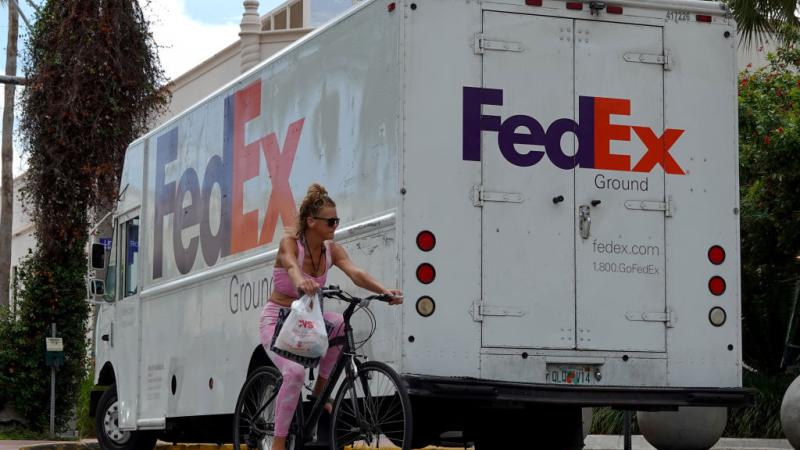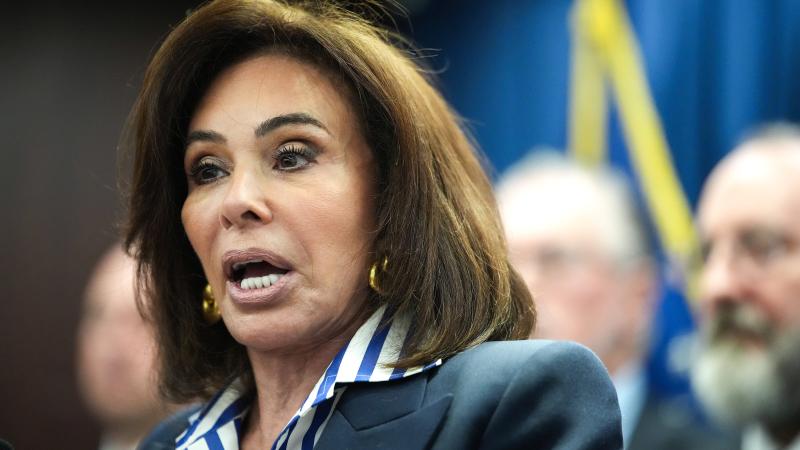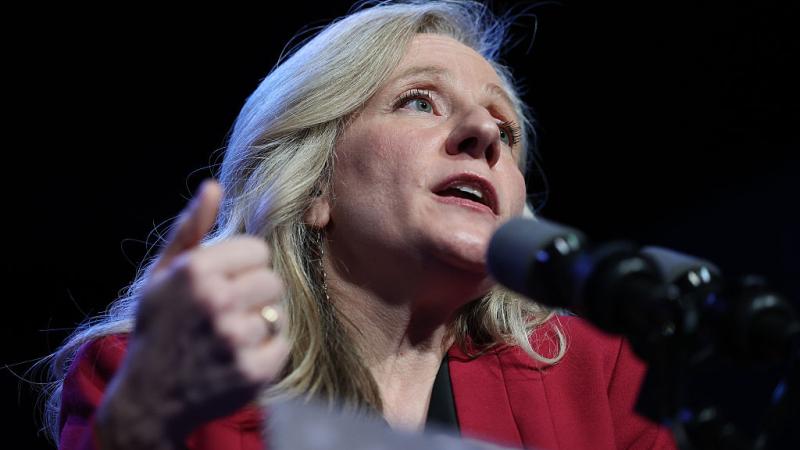Lake witness: Signature reviewers, ballot curers told to leave early, despite ballots left over
Lake's legal counsel said that there were more than 274,000 ballots that were approved in less than three seconds apiece.
On Wednesday, the first day of a three-day trial for Arizona 2022 GOP gubernatorial nominee Kari Lake's election challenge, a witness testified that early ballot signature reviewers and ballot curers in Maricopa County were told to leave early, despite there being ballots that still needed reviewing or curing.
Lake attorney Kurt Olsen called as a witness Jacqueline Onigkeit, who was a level 1 signature reviewer for both the 2022 primary and general elections.
Onigkeit testified under direct examination that she was trained by Maricopa County in signature verification and that reviewers were to examine 11 points of each signature on early ballot affidavit envelopes to verify that they matched either previous envelopes or the voter registration form. Signatures were reviewed in batches of 250, which reviewers had to examine twice. Onigkeit said she completed about six to eight batches a day.
She added that they were told multiple times that they were being monitored, and if reviewers were approving or rejecting too many signatures, even after being brought in to their superior’s office to discuss it, they would be let go. The reviewers were also reminded that they could be asked to testify on the signatures that they approve and reject.
She explained that the three level 2 signature reviewers — who had more signatures to compare a voter’s signature to than the level 1 reviewers — were overwhelmed and would send rejected signatures back to level 1 reviewers to double-check.
Onigkeit testified that, unlike the primary election where reviewers who analyzed signatures worked late and stayed until the last possible day to complete their review, reviewers were told to leave before the end of the last day when there were still ballots that hadn’t been reviewed. She was involved in ballot curing, as well, and said that ballot curers were told to leave early on the last day of curing when there were still approximately 6-7,000 ballots left to be cured.
She also noted that there were some signatures in voters’ histories — either previous envelopes or voter registration form — that didn’t match the name of the voter, which reviewers were told to record and send to a superior to fix.
Onigkeit said that other reviewers were complaining about the amount of bad signatures they encountered.
Maricopa County’s legal counsel had Onigkeit confirm in cross-examination that she did conduct signature verification. The lawyer noted that Lake’s counsel had previously said that no signature verification was conducted.
On redirect examination by Olsen, Onigkeit was shown a Nov. 10, 2022, video of two Maricopa County signature reviewers, where one was clicking through signatures quickly and the other was taking the time to examine that signatures were accurate. Onigkeit testified that it wasn’t possible for the reviewer who was going through signatures quickly to actually conduct signature verification.
Olsen mentioned in his opening argument that the reviewer who was quickly going through signatures in the video approved 100% of the 26,900 signatures he reviewed. Maricopa County counsel Thomas Liddy said in his opening argument that that reviewer was fired.
Olsen said in his opening argument that checking ballot signatures is "one of most important security" features that is "critical to mail-in voting."
He also said the county didn’t follow signature verification for hundreds of thousands of ballots as laid out in Arizona statute and the county’s own procedures.
Olsen said that there were "over 274,000 ballots approved at less than three seconds each," with one signature reviewer who approved 100% of the 26,900 signatures he reviewed.
Liddy argued that the county followed the Arizona statute for signature verification, which only requires that the county recorder determine if signatures on ballots are inconsistent with those on the voters’ registration records.
He said that the case isn’t about challenging the county’s signature verification process, but only whether or not the statute was followed. Since Maricopa County trained signature reviewers who reviewed the ballot signatures, Liddy argued that the county fulfilled its duty by comparing signatures.
Earlier this month, the Arizona Supreme Court ordered court proceedings to take place "forthwith" regarding Lake's claim the county violated its signature verification practices in last year's general election. The court granted one sanction against her legal team but denied the attorneys' fees that defendants had requested.
Lake fell about 17,000 votes short in the official count for the 2022 gubernatorial election against then-Secretary of State Hobbs.
She is suing Hobbs, the current Democratic governor, in addition to current Secretary of State Adrian Fontes (D) and Maricopa election officials, requesting the results be invalidated or that she be declared the winner.
Last week, Lake's team requested that the court review another count in her original lawsuit that was dismissed regarding illegal configurations of ballot tabulators and ballot-on-demand printers, but that motion was denied on Monday. The court also rejected the defendants' request to dismiss the case.
Maricopa County previously told Just the News, "The Maricopa County Recorder's Office remains confident in its signature verification process."















